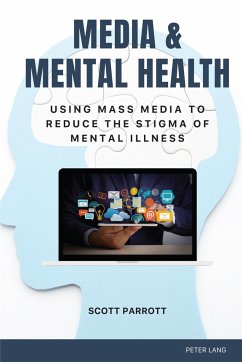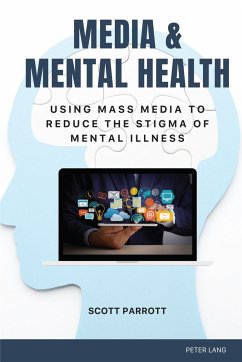
Promoting Mental Health Through Imagery and Imagined Interactions
Versandkostenfrei!
Versandfertig in 6-10 Tagen
41,00 €
inkl. MwSt.

PAYBACK Punkte
0 °P sammeln!
Imagined interactions (IIs) can be used as a type of self-therapy when dealing with stress and trauma. We often have IIs in terms of flashbacks as portrayed in movies. It is hoped that this volume will inspire some people to use IIs as a type of self-therapy and to realize that having IIs in everyday life is a normal part of daydreaming and mental imagery. IIs can be used productively as well as dysfunctionally. Hence, it is up to the individual to decide how they use IIs to deal with stress and trauma.Benefits of IIs include helping people rehearse strategies, reduce primary tension (which oc...
Imagined interactions (IIs) can be used as a type of self-therapy when dealing with stress and trauma. We often have IIs in terms of flashbacks as portrayed in movies. It is hoped that this volume will inspire some people to use IIs as a type of self-therapy and to realize that having IIs in everyday life is a normal part of daydreaming and mental imagery. IIs can be used productively as well as dysfunctionally. Hence, it is up to the individual to decide how they use IIs to deal with stress and trauma.
Benefits of IIs include helping people rehearse strategies, reduce primary tension (which occurs before or at the beginning of interactions), and gain others' viewpoints. Even though, you can think positively or negatively, thinking positively may be easier said than done. Human survival and mental health require a balance between optimism and pessimism. Individuals gain more self-understanding by thinking about interactions. It is a process called self-perception that clarifies feelings about people and topics. IIs can improve mood by reducing tensions through the catharsis function. They help us understand our beliefs.
The book is divided into three sections. Section 1 discusses how IIs can deal with teasing, bullying, abuse, and conflict. Section 2 covers physical, emotional, and material loss. Section 3 is concerned with policy concerns including hurricane evacuations, environmental concerns, police encounters, and presidential politics.
Benefits of IIs include helping people rehearse strategies, reduce primary tension (which occurs before or at the beginning of interactions), and gain others' viewpoints. Even though, you can think positively or negatively, thinking positively may be easier said than done. Human survival and mental health require a balance between optimism and pessimism. Individuals gain more self-understanding by thinking about interactions. It is a process called self-perception that clarifies feelings about people and topics. IIs can improve mood by reducing tensions through the catharsis function. They help us understand our beliefs.
The book is divided into three sections. Section 1 discusses how IIs can deal with teasing, bullying, abuse, and conflict. Section 2 covers physical, emotional, and material loss. Section 3 is concerned with policy concerns including hurricane evacuations, environmental concerns, police encounters, and presidential politics.














